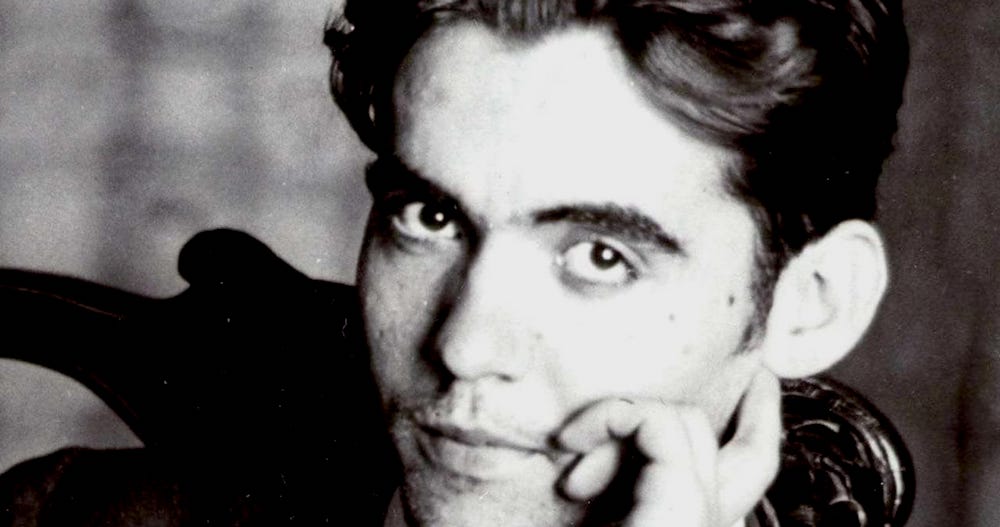Aaron Shulman in Literary Hub:
 Before dawn on August 17th, 1936, a man dressed in white pajamas and a blazer stepped out of a car onto the dirt road connecting the towns of Víznar and Alfacar in the foothills outside Granada, Spain. He had thick, arching eyebrows, a widow’s peak sharpened by a tar-black receding hairline, and a slight gut that looked good on his 38-year-old frame.
Before dawn on August 17th, 1936, a man dressed in white pajamas and a blazer stepped out of a car onto the dirt road connecting the towns of Víznar and Alfacar in the foothills outside Granada, Spain. He had thick, arching eyebrows, a widow’s peak sharpened by a tar-black receding hairline, and a slight gut that looked good on his 38-year-old frame.
It was a moonless night and he wasn’t alone under the dark tent of the Andalusian sky. He was escorted by five soldiers, along with three other prisoners: two anarchist bullfighters and a white-haired schoolteacher with a wooden leg. The headlights from the two cars that had delivered them here illuminated the group as they made their way over an embankment onto a nearby field dotted with olive trees. The soldiers carried Astra 900 semiautomatic pistols and German Mauser rifles. By now the four captives knew that they were going to die. The man in the pajamas was the poet Federico García Lorca.
More here.
